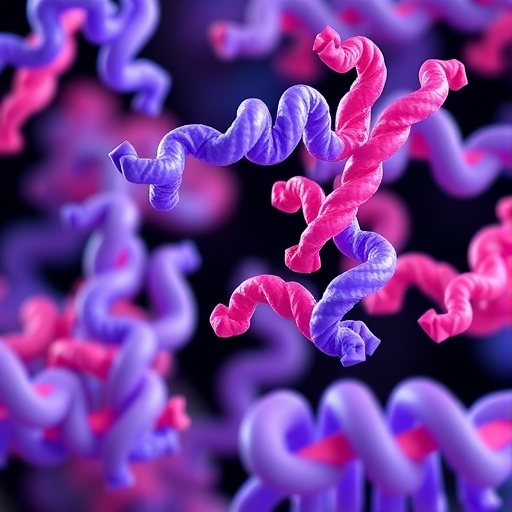Gynecological cancers, including cervical, ovarian, and uterine cancers, persist as significant global health challenges that primarily affect women. Despite advances in surgical techniques and systemic chemotherapies, these malignancies consistently demonstrate high relapse rates and often lead to poor prognoses. Conventional therapies are frequently associated with substantial toxicities, limiting their utility and adversely impacting patients’ quality of life. This pressing clinical landscape has driven an urgent quest for targeted treatments that can selectively eradicate tumor cells while sparing normal tissues. Among the most promising innovations in this realm are Antibody-Drug Conjugates (ADCs), a class of therapeutics that has begun to revolutionize the management of various solid tumors, including those in gynecological oncology.
ADCs are sophisticated biopharmaceutical constructs designed to harness the specificity of monoclonal antibodies combined with the potent cytotoxicity of small-molecule drugs. Structurally, an ADC consists of three integral components: a monoclonal antibody that selectively binds to tumor-associated antigens, a cytotoxic payload capable of inducing tumor cell death, and a linker that connects the two and controls the release of the drug within the malignant cell. This design enables the precision delivery of highly toxic agents directly into cancer cells, mitigating systemic exposure and reducing the collateral damage commonly seen with conventional chemotherapy. The linker chemistry is critical, as it ensures stability in circulation but allows drug release within the intracellular compartments of targeted cells.
The mechanism of action of ADCs unfolds through a series of carefully orchestrated intracellular events. Upon intravenous administration, the ADC circulates systemically until its antibody moiety recognizes and binds to a specific antigen expressed on the surface of tumor cells. This antigen-ADC complex is then internalized by receptor-mediated endocytosis, trafficking into endolysosomal compartments. Within these acidic intracellular vesicles, proteolytic enzymes or chemical conditions trigger cleavage of the linker, liberating the cytotoxic payload. Once released, the payload exerts a diverse range of mechanisms including disruption of microtubule dynamics, induction of DNA strand breaks, interference with metabolic pathways, or generation of reactive oxygen species, culminating in apoptosis or necrosis of the tumor cell.
The clinical breakthrough for ADCs in gynecological malignancies was marked by the accelerated FDA approval of tisotumab vedotin in 2021, a therapy specifically indicated for recurrent or metastatic cervical cancer. This milestone catalyzed expansive research endeavors worldwide, with several ADC candidates now undergoing rigorous clinical evaluation across a spectrum of gynecologic tumors. The spectrum of targeted antigens is broad and includes folate receptor alpha (FRα), human epidermal growth factor receptor 2 (HER2), tissue factor (TF), trophoblast cell surface antigen 2 (Trop2), mesothelin, B7-H4, cadherin-6 (CDH-6), and sodium-dependent phosphate transport protein 2B (NaPi2b), among others. This diversity not only broadens the applicability of ADCs but also reflects the heterogeneity of antigen expression in gynecological cancers.
The promising clinical outcomes from early-phase trials underscore the potential of ADCs to transform treatment paradigms. Evidence reveals substantial tumor regression and prolonged progression-free survival in patients who have exhausted conventional therapeutic avenues. Importantly, the unique biology of ADCs facilitates the circumvention of certain resistance mechanisms that limit the efficacy of standard chemotherapies, such as multidrug resistance mediated by efflux pumps. Moreover, the ability to tailor antibody specificity and optimize linker and payload selection offers unparalleled opportunities for personalized medicine, potentially enabling customized regimens based on the molecular profile of individual tumors.
Despite the enthusiasm surrounding ADCs, their administration is accompanied by a distinctive adverse effect profile that necessitates vigilant clinical management. Toxicities can stem from on-target off-tumor effects due to antigen expression in normal tissues, payload-related systemic toxicity, or immunogenic reactions. Commonly reported side effects include fatigue, peripheral neuropathy, hematologic abnormalities, and ocular toxicity, among others. Intensive research into optimal dosing schedules, advanced linker technologies, and the development of next-generation payloads aims to minimize these risks and enhance therapeutic windows.
As the landscape of ADC research rapidly evolves, efforts to integrate these agents into multimodal treatment regimens are underway. Combination strategies involving ADCs with immune checkpoint inhibitors, PARP inhibitors, or antiangiogenic agents hold promise for synergistic enhancement of anticancer activity. Moreover, ongoing investigations are exploring the role of ADCs in earlier disease settings, including neoadjuvant and adjuvant scenarios, to improve long-term outcomes and reduce relapse rates.
The future of ADCs in gynecological oncology is poised to be characterized by increasing precision and personalization. Advances in biomarker discovery and companion diagnostics will refine patient selection, enhancing efficacy and minimizing unwarranted toxicity. Additionally, innovations in antibody engineering, such as bispecific antibodies and site-specific conjugation technologies, are anticipated to improve targeting accuracy and drug delivery efficiency further. These improvements are expected to expand the therapeutic window and broaden the applicability of ADCs beyond currently approved indications.
In conclusion, ADCs represent a paradigm shift in the treatment of gynecological cancers, offering new hope where traditional modalities have fallen short. Their targeted mechanism delivers high-potency cytotoxic agents directly to tumor cells, reducing systemic toxicity and improving patient outcomes. The ongoing clinical studies and technological advancements forecast a future where ADCs will be central to personalized therapeutic strategies for cervical, ovarian, uterine, and other gynecologic malignancies. As research continues to unlock their full potential, ADCs may ultimately redefine standards of care and improve survival and quality of life for countless women worldwide.
Subject of Research: Gynecological Cancers and Antibody-Drug Conjugates
Article Title: Antibody-Drug Conjugates: Transforming Therapeutic Strategies in Gynecological Malignancies
Web References: DOI: 10.1007/s11427-025-3016-4
References: Science China Life Sciences, Literature Review
Image Credits: ©Science China Press
Keywords: Antibody-Drug Conjugates, ADC, Gynecological Cancers, Cervical Cancer, Ovarian Cancer, Targeted Therapy, Monoclonal Antibody, Cytotoxic Payload, Receptor-Mediated Endocytosis, Clinical Trials, Personalized Medicine, Tisotumab Vedotin




